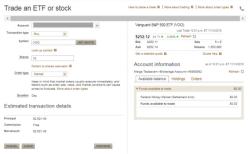What does m stand for in finance?
In finance, the symbol "M" typically stands for "Million." It is often used as an abbreviation to denote a value in millions of units of a particular currency, investment amount, or financial metric. For example:
Market Capitalization: If a company's market capitalization is $50M, it means the total value of its outstanding shares is $50 million.
Currency: In some contexts, "M" can represent millions of a currency. For instance, $5M would indicate 5 million dollars.
Investment Amounts: When discussing investment amounts or financial transactions, "M" is commonly used to represent millions. For example, an investment of $10M would mean ten million dollars.
Financial Metrics: In financial statements and reports, "M" may be used to represent millions when presenting figures such as revenue, profit, or expenses.
It's important to be aware of the context in which "M" is used, as it can have different meanings depending on the financial metric or quantity being discussed. In some cases, "MM" is used to represent "Million" as well, and it stands for "Thousand Thousands," effectively meaning a million.
What does the 'm' denote in finance?
In finance, the letter "m" can have several different meanings depending on the context. Here are some of the most common:
1. Million: The most common use of "m" in finance is to denote million. For example, "$10m" means ten million dollars. This is typically used when abbreviating large numbers for clarity and convenience.
2. Modified Duration: In fixed income analysis, "m" can also stand for Modified Duration, which measures the sensitivity of a bond's price to changes in interest rates.
3. Margin: In derivatives trading, "m" can refer to margin, which is a deposit required to open and maintain a position.
4. Market Capitalization: In the context of equities, "m" can sometimes be used to denote market capitalization, which is the total market value of a company's outstanding shares.
5. Monetary Base: In macroeconomics, "m" can represent the monetary base, which is the sum of currency in circulation and bank reserves held at the central bank.
6. Multiplier: In various financial calculations, "m" can represent a multiplier, such as the price-earnings ratio (P/E) or the return on investment (ROI).
To determine the specific meaning of "m" in a given context, you need to consider the surrounding information, such as the subject matter, other abbreviations used, and the source of the information.
Here are some examples of how "m" can be used in different contexts:
- News headline: "Company XYZ reports $10m profit in Q3." (Million)
- Bond datasheet: "Yield: 5%, Modified Duration: 5.5m." (Modified Duration)
- Trading platform: "Available Margin: $10,000." (Margin)
- Company profile: "Market Cap: $500m." (Market Capitalization)
- Economic report: "The monetary base grew by $100m last month." (Monetary Base)
- Financial analysis: "The P/E ratio is currently 20m." (Multiplier)
In case of any doubt, it's always best to clarify the meaning of "m" directly with the source or consult a financial dictionary for specific definitions.












